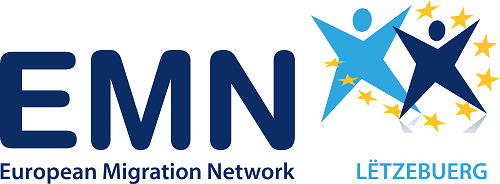How do EU Member States, Norway and Georgia tackle human trafficking of third-country nationals? The latest study from the European Migration Network (EMN) maps the framework at EU and national level relevant to the detection, identification and protection of presumed victims.
Trafficking in human beings is a crime against the victim’s fundamental rights. It can take several forms, such as sexual exploitation, forced labour or services, slavery and servitude-related practices, as well as the removal of organs. This practice is prohibited under numerous EU and international instruments. Yet, persistent demand for sexual services and for low-wage workers employed in manual jobs continues to provide opportunities for traffickers to exploit human beings.
Third-country nationals account for more than half of all registered victims in EU Member States, with unaccompanied minors and those in the process of seeking asylum being at particular risk of becoming victims. This study provides an overview of measures and best practices around detection, identification and protection of third-country national victims of trafficking in human beings in 25 EU Member States[1], Norway and Georgia from January 2015 to December 2020.
Several instruments are in place at EU level to tackle human trafficking, providing the framework for identification and protection of victims and establishing the right of third-country nationals to enjoy equal treatment in respect of social security, social assistance and social protection.
At national level, the main trends between 2015 and 2020 in EU Member States, Norway, and Georgia included institutional, policy and legislative developments. For instance, several Member States have introduced coordination systems to synergise and intensify their activities, as well as adopting or re-adopting National Action Plans to prevent and combat trafficking in human beings. Member States also implemented practical measures, for instance awareness-raising activities such as information leaflets and info days, media coverage on trafficking in human beings and publication of reports.
Cooperation is crucial in the fight against human trafficking. At EU level, it ranges from mechanisms for exchanging information and good practices to joint operations that reinforce collaboration between competent authorities, as well as specific ad hoc initiatives in response to emerging needs or challenges. At international level, several Member States cooperate against human trafficking with and within the structures of several organisations, such as the International Criminal Police Organization (Interpol) and the International Organisation of Migration (IOM). Cooperation is also pursued with third countries in order to ensure the safe return and reintegration of victims of trafficking in human beings.
In response to the COVID-19 crisis, Member States adopted practical changes to the measures against human trafficking, for instance the use of hotlines, online learning to raise awareness of the risks of online sex trafficking and child exploitation, and digitalisation of the residence permit application process. Several Member States revisited their overall strategies and policies related to victims of trafficking in human beings, including considerations on the impact of the pandemic and allocating additional funding to public authorities and civil society organisations to better support presumed victims.
Below you will find the EMN study, EMN inform and the EMN flash.
French translation of the Inform was kindly provided by EMN France.
[1] AT, BE, BG, CY, CZ, DE, EE, EL, ES, FI, FR, HR, HU, IE, IT, LT, LU, LV, MT, NL, PL, PT, SE, SI, SK.

